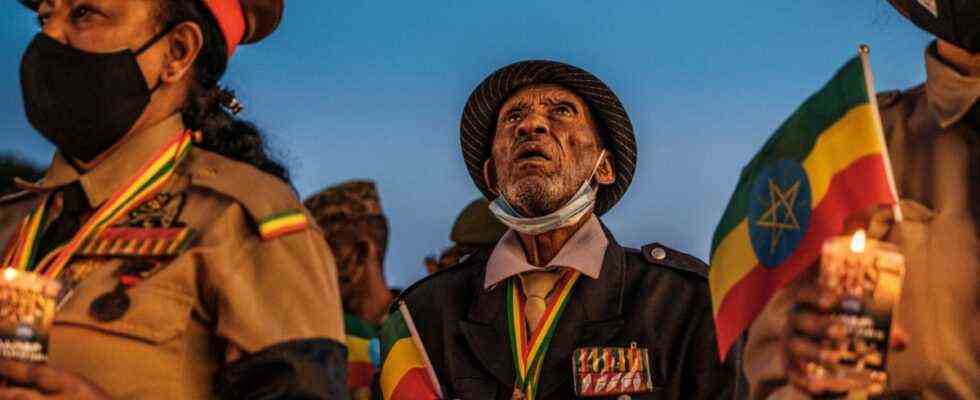On Sunday it sounded a bit as if Olusegun Obasanjo was already at the end of his patience. The former President of Nigeria has only been the African Union’s Special Envoy for the Horn of Africa since August; As such, he should find a solution to the war in Ethiopia, which so far has probably cost tens of thousands of lives. Hundreds of thousands are on the run, millions are suffering from malnutrition. Over the past few days, Obasanjo had always spoken of a small window of time that has now opened: a chance to at least reach a ceasefire between the conflicting parties, which could then lead to the initiation of peace negotiations.
For almost a week, Obasanjo commuted back and forth between the opposing parties, meeting Ethiopia’s Prime Minister Abiy Ahmed and the leaders of the breakaway province of Tigray in the north, as well as representatives of other ethnic groups. Although everyone was for peace, Obasanjo said after his trip, how this could be achieved, there was no consensus on that. “I appeal to all parties to the conflict to stop their military offensives,” Obasanjo said on Sunday. It didn’t sound like he had made any remarkable progress.
A year ago the war began in Ethiopia, which mainly revolves around which ethnic group has how much power in the gigantic empire with 111 million inhabitants and more than 80 ethnic groups. For almost 30 years, the representatives of the Tigray had dominated politics and the economy with their People’s Liberation Front TPLF, although they only make up six percent of the population. In spring 2018, after long protests against the TPLF dominance in Abiy Ahmed, a representative of the largest Oromo group came to power for the first time. He made peace with the archenemy Eritrea, but with the elite of the disempowered TPLF he did not come to an agreement. Since then the conflict has escalated. The USA are now trying to mediate, and Kenya and Uganda have intervened.
The TPLF troops are about 300 kilometers from the capital, they have meanwhile concluded alliances with eight other rebel groups, the strength of which is negligible except for the Liberation Army of Oromia (OLA). How many fighters the TPLF and its allies have is difficult to say, experts estimate several hundred thousand. Many of them have deserted from the Ethiopian Federal Army (ENDF), whose bases in the north they looted. In the past few days the TPLF has tried again and again to conquer the strategically important road to the port of Djibouti, from which Ethiopia, which has no access to the sea, obtains most of its goods.
The residents of the capital should arm themselves with whatever they can find
According to observers, many ENDF command structures have now partially collapsed, but the federal army is said to have received drones from Turkey, Iran and China. In addition to aerial bombing, Prime Minister Abiy Ahmed is focusing on the youth, who are being called on to join militias to defend the capital and federal Ethiopia. The residents of the capital should arm themselves with whatever they can find.
A week ago, tens of thousands of people came to central Meskel Square in Addis Ababa to demonstrate for Abiy Ahmed and to support the war. They demonstrated against western media like CNN and their reporting; the US broadcaster recently falsely claimed that the TPLF rebels were already in “the suburbs” of Addis Ababa. The Mayor of Addis Ababa, Adanech Abebe, told the cheering crowd that the current crisis in Ethiopia was a conspiracy by the Western powers that could only be countered by mobilizing the masses. Only one speaker at the event did not want to join the howl of war.
“The youth should not go to the front to fight, but the older ones should hold the fresh grass and ask for reconciliation,” said the popular singer Tariku Gankisi. The grass is a symbol of peace in Ethiopia – but it is currently not in great demand. Tariku’s microphone was turned off, and in the days after his appearance he received so many death threats that he tearfully apologized for his appearance on talk shows.
Moderate voices are currently not in great demand on either side. Neither party could win the conflict militarily, says AU mediator Obasanjo, who has not yet found any other solution that everyone accepts.

